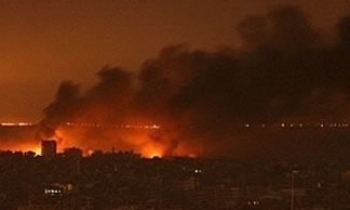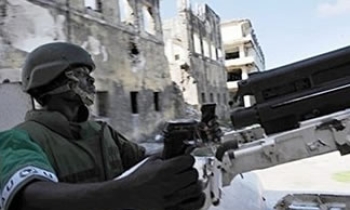Journalists under repression around the world tend to find that financial independence and stability are keys to resisting pressure and harassment. Peter Whitehead of the Media Development Loan Fund reports on how veteran independent journalists are sharing their expertise with the new targets of dictatorship.
Although 2005 was the most dangerous year in a decade for journalists, with 63 killed and around 100 in jail at any given time according to Reporters sans frontières, a more subtle and arguably more effective means of censorship happens on a daily basis. And it takes place in far more than the 24 countries in which the Committee to Protect Journalists recorded jailings last year.
It is often not a knock at the door in the middle of the night that puts an independent newspaper or radio station out of business. It is a phone call in the broad light of day, usually from a state monopoly or private company with links to the government telling an editor that it will no longer be buying advertising space. Or it might be a letter from a city’s only printing house informing a newspaper that it will no longer provide printing services.
With the growth in global information, most governments are much more conscious of their international reputation than they used to be. Although there are still regimes such as those of Myanmar and Vietnam which censor and repress with total disregard for world opinion, the vast majority are now eager to keep up appearances. But scratch the surface and you will find widespread censorship of a different kind.
Tax audits, withdrawing advertising and refusing access to monopoly services are just some of the ways governments try to bend the media to their will. Such tactics have the advantage of barely registering on the radar of pressure groups and foreign embassies. Economic pressure is so commonplace – and the chain of cause and effect so hard to prove – that it is not consistently monitored by any international organisation.
But as governments become more aware that financial obstacles can strangle a free press without leaving fingerprints, there is a growing realisation by independent media that the best way to keep the presses rolling and the transmitters switched on – while maintaining editorial independence – is by financial self-sustainability.
“Financial independence and stability are closely connected to professional independence and autonomy,” says Veran Matic, Editor-in-Chief of Belgrade-based TV, radio and internet company B92. Premesh Chandran, CEO of Malaysiakini.com, a subscription-based internet daily, agrees: “Financial independence ranks 8 out of 10 in importance. Without financial independence there is a high chance that editorial independence will be compromised. Standing by editorial independence will carry the risk of financial repercussions.”
For the most committed journalist-entrepreneurs, financial and editorial independence amount to the same thing. “Financial independence is the foundation of our existence,” says Arkady Maiofis, President of TV2 in Tomsk, Russia. “If we are financially independent, we will carry on our business. If not, it becomes some other kind of business – one we’re not interested in.”
But developing an economic base strong enough to resist pressure can be a long and arduous trail. Since its foundation in 1991, Russian newspaper Krestyanin has known hard times as well as good, and in 1998 even flirted with closure. In recent years Editor-in-Chief Vladimir Fomin has concentrated on improving the economic position of his newspaper in two ways. First the paper has developed its own advertising service, which increased revenue from advertising sales by 42 percent in 2005. Second, Krestyanin has set up its own printing house.
Owning a printing press not only frees a newspaper from the censorial whims of (often state-owned) printing houses, the machinery itself becomes an important source of extra revenue. It even promotes media plurality by providing printing services to other independent newspapers and magazines.
A classic case of this kind of censorship occurred in 1995 in Slovakia when, under intense political pressure, all printing houses in Bratislava refused to print SME newspaper. For six months Petit Press, SME’s publisher, printed the daily in a town 100 kilometres away and brought it by car to the capital for distribution. Petit Press’s solution was to become the first Slovak publisher to build its own printing house. This autonomy helped give SME the strength to survive many kinds of intimidation, from court cases and fines, to threats and attacks by the intelligence services. Petit Press now publishes 31 titles and employs about 550 staff.
Insecure
Although Fomin admits Krestyanin’s financial position is still not totally secure, he is proud it has established the economic robustness necessary to remain in business and safeguard its objectivity. “Without financial independence and stability it is impossible to work in socially responsible journalism … We can afford not to act as an information service for authorities and oligarchs. We do not publish paid articles of a positive or negative character, which in current Russian journalism is almost a legal way of earning money. We do not take sides in regional election campaigns, which is another significant income source [for others], so we won’t mislead our readers.”
Not only is financial viability good for journalists by enabling media companies to pay them properly – as B92’s Matic puts it, “If they are risking their lives by doing their job, this is the least you can do” – it is also good for journalism. It is not simply a question of moral weakness that makes a journalist lose his or her objectivity. In some countries journalists are paid so poorly – or even not at all – that bribes can become almost irresistible. “The most important aspect of financial independence is that it allows our staff to work in proper conditions,” says Santoso, General Director of KBR 68H in Indonesia. “Because with that we are able to provide good working conditions and benefits which in turn means that our staff have no reason to, for example, accept 'envelopes' [bribes].”
At KBR 68H – an award-winning independent radio news agency that uses satellite technology to network more than 400 radio stations, providing locally-produced news to 8 million listeners – Santoso identifies the development of a marketing department as the most significant step his company has taken towards financial independence. “This has involved raising the capacity and skill levels of the marketing staff. But not only this, it has also required a change in the way of thinking of the management more generally, to make us all more aware of the business aspects of our work, whether it relates to the development of a business plan, adherence to budgets, etc.”
For Matic at B92, the two years spent planning the transition was crucial to the company’s survival. “We wanted to be prepared for working in the conditions of market competition on a commercial basis. This is the toughest part of winning financial independence … We invested large sums of money in these educational processes, by bringing very esteemed groups of trainers from all over the world.”
Diversity of income is another cornerstone of economic strength. By avoiding over-reliance on any single source of revenue, a news outlet can minimise the pressure any individual or company can exert. For Maiofis, this means having no single advertiser whose budget is higher than five percent of TV2’s total revenue.
Many of these editors and managers who have led their companies along the perilous route to self-sustainability are now actively helping others do the same. Russian publishers such as Altapress, Chelyabinskiy Rabochiy and Premier helped Krestyanin develop a publishing structure that provided a more solid economic foundation, while in return Altapress drew inspiration from Krestyanin’s editorial innovations to launch a thriving niche publication.
Buoyed by several successes – such as forcing the Russian postal service to end its unfair tariff system – Krestyanin, Altapress and other Russian publishers have institutionalised their co-operation by forming the Association of Independent Regional Publishers (AIRP). As several benefited from low-cost loans to help them develop their businesses, AIRP is planning to launch a pilot project later this year to provide loan financing to regional publishers.
It is not just in Russia. Malaysiakini offers an online payment management system to other publications through its non-profit subsidiary Seacem. And in Indonesia, the structure of the KBR 68H network provides for some advertising revenues to be shared among members, meaning that local stations with little access to commercial markets can benefit from the network’s penetration into more urban areas. KBR 68H also works to establish stations in remote parts of the country. “So far we have set up six radio stations in Eastern Indonesia and are working with them to develop simple but effective business plans to ensure financial self reliance,” says Santoso. “We are also doing the same with new radio stations we are setting up in the tsunami-hit province of Aceh.”
About 60 of these journalist-entrepreneurs get together every two years in a media forum to exchange ideas on building and maintaining financial autonomy – and the numbers are growing. With their commitment to each other’s independence almost as strong as their dedication to their own, a brighter dawn just might be breaking.
• Peter Whitehead is the Director of Communications at the Media Development Loan Fund in Prague.









